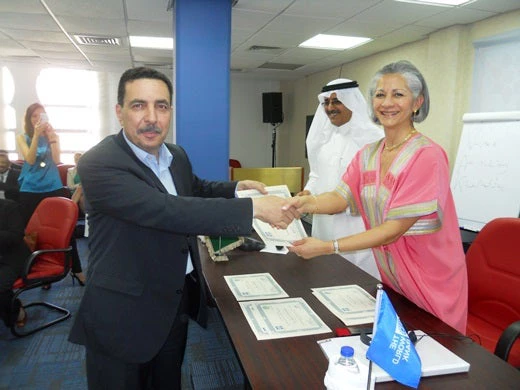
To date, however, the World Bank and other donors have focused on improving SMEs’ access to financing in MENA. While this is crucial for enabling SMEs to develop, it overlooks other paths to growth, including opportunities in the public market.
Most MENA governments spend billions each year paying companies to provide them with goods and services—a process known as public procurement. This process involves issuing government contracts to companies; it accounts for 15 to 30 percent of Gross Domestic Product on average. The proportion of this spending that goes to SMEs is relatively small though. Increasing it could become an important source of revenue for SMEs.
What are the challenges to SME participation in public procurement?
SMEs face two main challenges in winning government contracts: most public procurement systems were not designed to issue contracts to companies their size. By making small changes to these systems, governments could reap large rewards in their national economies.
For example, reducing the cost of preparing and submitting a bid for a government contract would help, as would making the requirements more realistic for small companies and paying them quickly to avoid cash flow challenges.
Second, SMEs themselves need to be made more aware that opportunities for doing business with their governments exist, and they need to have the technical know-how to create good bids.
What is the World Bank doing to help MENA’s SMEs prepare themselves ?
The World Bank is working with public and private sector stakeholders to expand SMEs’ access to public procurement, launching an ambitious regional program with the support of a US$750,000 grant from the Micro, Small and Medium- Size Enterprise (MSME) Facility of the Arab World Initiative.
The Bank—working in cooperation with members of the Arab Administrative Development Organization—is supporting governments across MENA to establish an innovative training program aimed at encouraging SMEs to participate in public procurement. A major component of this program, which is led by the MENA Network of Public Procurement Experts, focuses on capacity building.
Recently, members of training institutes and government officials from Morocco, Tunisia, Egypt, Yemen, the Kurdistan Regional Government of Iraq, Lebanon, Jordan, Djibouti, and the Palestinian Territories met in Sharjah, United Arab Emirates, to participate in the “training of trainers” event.
At the event, it was agreed that training materials would be customized to meet the specific needs of SMEs in different countries, after which the training would be offered to local SMEs.
Why should we care about SMEs’ access to public procurement markets?
SMEs could play a vital role in helping address the youth jobs’ crisis in MENA, where 40% of young adults are neither in full-time education nor employment. It is therefore important to explore new avenues, like public procurement, to support them.
Giving SMEs the chance to bid for government contracts—and win them—could increase the amount of business they do, creating local jobs. Local populations could benefit too as SMEs are well-positioned to provide goods and services in areas governments find less easy to serve.


Join the Conversation